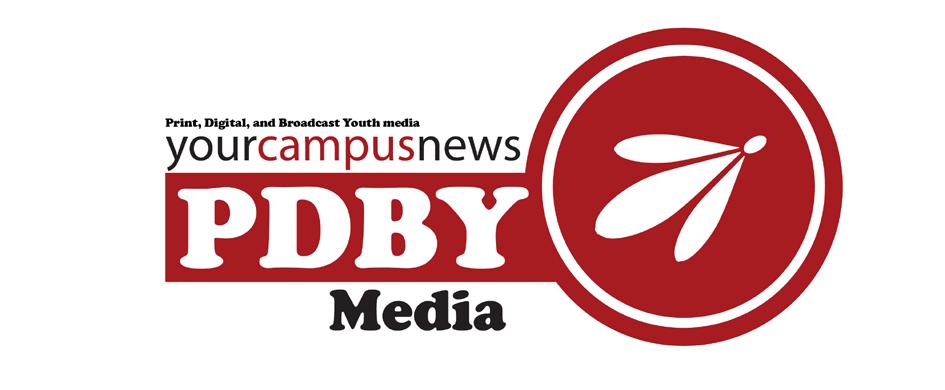






In the words of Project Runway’s ex-host Heidi Klum, ‘Auf Wiedersehen’. It is officially mine and many others’ final edition and final days at PDBY. Although we are all getting a well-deserved break (damn creating this newspaper is hard work) let’s just say that me and Ashleigh (our lovely entertainment editor) have pretty much been on the brink of tears the last few weeks.
So in the spirit of tears and all, I would like to dedicate my last editorial to all the weird and wonderful people who worked with me this year (this was supposed to be part of my speech at our end of year function but I will probably be too emotional ... and drunk ... to get through it).
So cheers …
- To all the long days and late nights in the office, especially seeing Michaela, Sechaba, Banathi, Skipps and Vee (sometimes you were the first and last people I saw in the office)
- To the abundant conversations about cannibalism (cough cough Precious)
- To that wild confession session at camp (I know way too much about all of you)
- To the drunknic and braai (I hope your shirt still smells like beer Katherine)
- To basically forcing Katherine to become sports editor and seeing magic happen in sport (high fives to me, Kayla, Mothusi and Amu)
- To all the cigarettes I almost smoked with Mothusi, but maybe we’ll share one when you’re editor-in-chief for Vogue Africa?
- To my beautiful editorial - Ntokozo’s roasts, Kirsten’s perfectly timed quips and impeccable blue cocktails, Ashleigh and Katherine’s top tier banter, Masehle’s laugh and Kelly’s giggles, gossiping with Amu about too many campus scandals, and to the way Mothusi says “b*tch”
- To Ashleigh (assistant to the regional manager, mini-me). I’ll miss seeing your face as often as I do you rat bastard.
- To the end of a generation (Roman and Kelly we are the last of the 2019 camp generation), and I shudder at the thought of a world where Roman’s red booty shorts don’t appear on camp
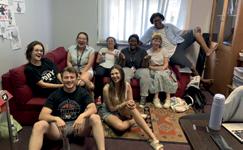
- To all the 5am layout sessions Kelly, we did it! (despite our two man team, the occasional 6-hour time difference and a hurricane or two)
Copy:
Nondumiso Mntambo

Lee Tankle
Lwando Mfundisi
Karla van Dyk
Kamogelo Thando Mabe
Luka Joubert
- To all Banathi’s “boos” and “that’s what she saids” (I will forever hear your voice echoing those words in my head baby gorl)
- To all the laughs (especially Masehle’s and Rebecca’s - hearing them always makes me smile)

- To all the stories exchanged in the layout room (Franco your loan and foreskin stories are permanently tattooed on my brain)
- To Kirsten’s obsession with zebras
- To all the people who attended the trial (especially Luka and Katherine, the best legal counsil to be seen at PDBY to date)
- To the greatest kidnapping pulled off inside the PDBY office (this is by no means an admission of guilt, but hehe Vuyiswa my partner in crime)


- To Masehle’s dancing and cycling skills
- To our covert car chase in Kirsten’s car
- To hearing Skipps, a literal angle, whisper the word f*ck (I can now leave the office in peace)
- To our camp scenario (you all gave Giovanna a run for her money)

- To our wonderful readers. Thank you to all of you who picked up and read our paper this year, who liked or left comments on our Instagram, or interacted with our journalists. We could not have had a successful year without all of you.
Although I’m really sad, I’m happy to say that PDBY is in good hands, and I can’t wait to see all of you take PDBY to new heights. To those of you leaving, I hope you look back at your time at PDBY as one of your best experiences at university - I can’t wait to see all the wonderful things you are all going to accomplish. You have all made this year an unforgettable experience, and I will happily bring this kind of thuggery to all my future endeavours (hey Masehle).
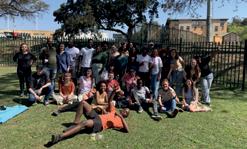
Love you all and always

Leah <3
P.S. To the EFFSC, DASO and anyone else who we (and more specifically Banathi) pissed off throughout the year
1. We never wanted to attend your braai anyway
2. Now that most of us are leaving, truce?
P.S.S. To the person who stole my unopened bottle of wine on 8 October at L.C - One day I WILL FIND YOU
Editorial
Editor-in-chief carel.willemse@up.ac.za
Carel Willemse @Ed_in_Chief Editor editor@pdby.co.za
Leah Rees @pdbymedia
Digital Manager digitalmanager@pdby.co.za
Leah Rees @pdbymedia
News news@pdby.co.za
Amukelani Makamu @khelanimeigh.rsa
Deputy News news@pdby co.za



Mothusi Mokalane @mr_mokalane
Features features@pdby.co.za
Kirsten Minnaar @kirsten_minnaar
Entertainment entertainment@pdby.co.za




Ashleigh Pascoe @ashleigh.pascoee
Sport sport@pdby.co.za
Katherine Weber @isleepalldayandallnight
Copy copy@pdby.co.za
Ntokozo Xulu @ntokozo__xulu
Visuals visuals@pdby.co.za
Masehle Mailula @masehle_mailula
Multimedia multimedia@pdby.co.za
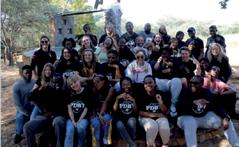
Masehle Mailula @masehle_mailula
Layout layout@pdby.co.za
Kelly Anne Kong Kam Wa @kelly.anne15
Web webeditor@pdby.co.za

Social Media socialmedia@pdby.co.za
Marketing marketing@pdby.co.za
Busisiwe Yaka
Lizé Behrens
Luke Best
Nicholas Da Costa
Nolwazi Sangweni
Jade Fabri
Zanrie Linstrom
Layout:
Annelize Breed
Sagarika Dash
Owam Ngwneya
Joshua Hunter
Nthabiseng
Izabel Stickells
Thimna Quinta
Multimedia:

Cletus Mulaudi
Tshepang Rihlampfu
Sharon Dumba
Jaime Lamb
Sanele Zulu
Mokgome Sechaba Ntshehi
Cleo Qin
Salani Masevhe
Richard Junior Nathan
Katharine O’Ehley
Nothando Mhaule
Web:
Onele Gabadu
Keegan Bosman
Carl Unathi Ndlovu
Social Media:
Tsholofelo Mogotsi
Sibusiso Mabotja
Smele Mzobe

Manaletsana Percy Mogwane
PDBY appreciates that freedom of speech is an inalienable right enshrined in the Constitution of the Republic South Africa. We encourage our readers to engage in discussion and debate on issues that affect them through letters to the Editor, comments on our website, tweets, or posts on Facebook. We ask our readers to keep the following in mind:

1. PDBY will not edit letters, comments, tweets, or Facebook posts in any way.
2. PDBY will label letters, comments, tweets, or Facebook posts as opinion. These do not represent the views of PDBY in any way.
3. The PDBY editorial must approve letters, comments, tweets, or Facebook posts before they are published.
4. PDBY will not publish letters, comments, tweets, or Facebook posts that are defamatory, or libelous, or that contain offensive content.
5. PDBY reserves the right to practice discretion when publishing letters, comments, tweets, or Facebook posts.
6. PDBY reserves the right to publish any content we receive unless the sender specifically requests otherwise.
7. PDBY reserves the right to retract a letter, comment, tweet, or Facebook post after it has been published.
8. PDBY will not accept responsibility for any consequences the author of a letter, comments, tweets, or Facebook posts may experience as a result of the letter being published.
9. PDBY will only publish letters between 150 and 200 words.
10. PDBY will not publish letters unless the writer confirms their full name, student number and contact number. PDBY will not publish this information, we need it for our records.
On 25 October the SRC held the fourth quarter Student Forum in terms of section 43 of the Constitution for Student Governance (CSG). This student forum was exceptional as it also served as the second and third quarter student forum. However, possibly due to running over time, the forum had to be dissolved on account of SRC members leaving the forum prematurely, rendering the gathering unconstitutional. With this, PDBY investigates, the final student forum of 2022.
Points of order – what does Rule 11 even mean?
The unceremonious and incessant raising of Points of Order in terms of the Rules of Student forum are not new to student forum. Normally this results in a back and forth between the Chief Justice, as the presiding officer, and members in attendance. This back and forth can last anywhere from 45 minutes to an hour, which often disrupts and extends the proceedings. However, unlike previous student forums, the application of rule 11 of the Rules of Student Forum raised much debate among those in attendance and the Chief Justice of the Constitutional Tribunal, Tiara Josephs. This controversy even raised questions concerning the professional competence of the Chief Justice, as incoming president of the SRC, Njabulo Sibeko, said, “the Chief Justice, is a flip flopper!”.
The events that lead to the above began when following several points of order from Thabiso “Mathaithai” Masomakeng, a member of the EFFSC, the Chief Justice made a ruling in terms of Rule 11(12) read in conjunction with rule 7 and rule 11(3)(b) of the Rules of Student Forum. The Chief Justice ruled that she will not be hearing further points of order for the time being.
Rule 11(12) states: “a member may raise a point of order at any time during the proceedings except where the presiding officer, the Chief Justice, has made a ruling on a point of order which is final and binding”. Given that this was the initial rule that the Chief Justice relied on to dismiss further points of order, confusion was bound to occur.
The aforementioned is evidenced by the fact that when other members, affiliated and non-affiliated with the EFFSC, sought to raise subsequent points of order, the Chief Justice dismissed these points based on her initial ruling - her refusal to hear subsequent points of order for the time being.
The debate concerning the issue at hand, was whether this ruling applied exclusively to that singular point of order or uniformly upon subsequent points of order. The Chief Justice, averred that the latter was indeed the case, however it is down to interpretation on whether the ruling the Chief Justice made can constitute as such in terms of rule 11(12). However, read together with section 11(3)(b) of the rules of student forum, the chief justice can delay addressing a point of order which has been recognized and thus justifying the rationale
consensus regarding the Chief Justice’s initial rulings. Finally, the reasoning the Chief Justice inconsistent

another, rather the application in practice left much to be desired and resulted in a series of harsh criticisms.
The presiding officer – Was she biased?
Among the criticisms levelled at the Chief Justice during the points of order, was the charge of bias, and there may be some merit behind this claim. PDBY can confirm that, there seemed to be a pathology adopted by the Chief Justice when recognising points of order raised by the factions in attendance.
Points of order raised by members of SASCO, and the EFFSC were addressed, albeit against previous judgements, while only two points of order raised by DASO were heard and addressed the moment they were raised. Instead, the Chief Justice opted for the points of order, not just DASOs, to be heard under the questions brought without notice. This left DASO member Liam Jacobs remarking, “I am disgusted, discombobulated and disappointed.”

On this, vice-chair of DASO, Christo Pretorius, said, “we as DASO are disgusted and disappointed by the behaviour from the presiding officers for not recognising us since the beginning of the forum. We note that the Chief Justice needs to follow procedure, however they have consistently let the EFFSC disrupt and raise points of orders. This does give the impression that there are some biases perhaps.” In addition, Pretorius said, “we simply wanted to raise a point of order in terms of rule 6 so that the Chief Justice would recognise their authority to speak without being interrupted.”
In addition, Sibeko added, “The presiding officer was all over the place. She quoted rules which contradict each other, and this is what happens when I guess no one can hold her to account. There is no rule in the Rules of Student Forum which says you cannot make a point of order. There is no rule that allows for that, not even read in conjunction with one another. You had members of the DA [...] who had their hands raised for hours, but weren’t heard. It shows a lack of accountability and a lack of impartiality, you can’t have that in the office of the Chief Justice.”
In giving the Chief Justice the benefit of the doubt, Sibeko was asked as to whether it is merely a
Bokang Selepe
When the Jacarandas have bloomed, and the heat becomes a representation of the academic climate, it means that the end of year exam season is upon us. Exams are always stressful regardless of the degree and for many students, the upcoming November exams will be their first time writing exams on campus. PDBY consulted the UP 2022 General Academic Regulations and Student Rules Handbook to identify some important exam rules to ensure all students enter the exam venue with the dos and don’ts when writing a UP exam. The main rules are as follows:
1. You will not be allowed to enter the exam venue without a valid student card.
2. You will not be allowed to enter the exam venue later than 30 minutes after the exam begins, and you will not be allowed to leave the venue earlier than 30 minutes after the exam begins.
3. Obey all instructions given by the invigilator.
4. All electronic communication devices including cell phones, smartwatches, earphones,
laptops, and tablets must be switched off and placed on the floor under the chair and out of your line of sight. The invigilator will not provide you with any stationery or equipment required to write your exam.
6. Do not communicate with your classmates during the exam under any circumstances.
7. You are not allowed to write on any paper other than the ones provided during the exam, and you are prohibited from removing any pages from the exam script.
8. Fill in your full name, surname, student number, and signature on both the attendance slips and the exam script.
9. Do not cheat or attempt to cheat during the exam session.
If you are still feeling uncertain about the upcoming exams, PDBY consulted with various Faculty Student Advisors to find some tips to prepare for sit-down exams.
• Time management. Most exam anxiety comes from lack of preparation and procrastination. If you give yourself enough time to study, then you will enter
the exams with confidence.
• Find the location of your exam venues prior to writing to avoid unnecessary stress on the day of your exams.
• On the day of the exam, do not sit amongst groups trying to cram at the last minute, as this can cause confusion and added stress.
• Do not aim to write the supplementary exam. Aim to write and pass the main exam.

• For all practical and numerical subjects, practice the formulas the day they are taught and make use of past papers in your study sessions.
• EMS students must make use of the EMS UP Principle, which is to Understand before you Practice.
• If you begin to feel nervous during the exam, make use of mantras such as “stay calm” and the thought-stopping technique. This consists of mentally shouting “STOP!” when having spiralling thoughts during the exam session.
• Be conscious of the allocated times and
drafting problem with the rules or whether the Chief Justice was indeed wrong in her application of the law. To this Sibeko says, “There can be amendments made in terms of the rules, [referring to rule 7] but it refers to minor amendments and not saying that no points of order can be made.”
When asked to respond to the accusations of bias from members in attendance, the Chief Justice stated, “I went according to the rule set, so […] yeah.”
Constitutionality of the gathering – It dissolved here
Student forum was dissolved when the Residences portfolio holder, Erique Francis, suddenly left the forum and the Chief Justice decided to dissolve the proceedings and thus continue the trend of leaving 2022 Student Forums unfinished. On this, Sibeko says, “The SRC failed to account for what they have done throughout the quarter once again.” However, another concern raised during Student Forum was the limited attendance of the SRC portfolio, as only 8 out of 16 SRC members were in attendance. On this Sibeko commented, “This was a day that was set two weeks ago for student forum and there is a habit of SRC officers to avoid taking account for student forum […] how can I as a student believe that all these portfolios weren’t here and that they all have valid excuses?”
Conclusion
In conclusion, while the definitive reason for the forum ending prematurely was Francis’s departure, the continued debate over the presiding officers rulings may have equally contributed to the dissolution of the quarter four forum.
*PDBY reached out to the Secretary General of the SRC, Tarik Lalla, but could not receive a reply before going to print. Any reply supplied by Lalla will be noted on pdby.co.za
read the questions thoroughly.
Exams are a personal experience that only you can prepare for. Make sure you follow the exam rules to prevent any disciplinary actions and make use of the exam tips provided by the Faculty Student Advisors to ensure that you are well prepared for your exams. Although the slogan might be a bit cheesy, the Finish Line truly is Yours. So, FLY@UP this exam season. You’ve got this.
When asked to respond to the accusations of bias from members in attendance, the Chief Justice stated, “I went according to the rule set, so […] yeah.”Cartoon: Banathi Nkehli Image: Sechaba Ntshehi
Adelle Jansen and Thabang Moloi
Being proud and having “Pride” take on a lot of different meanings, each being tailored to the individual experiences of one’s journey. This is why different countries celebrate Pride Month during different times of the year (attributed to country-specific monumental historical LGBTQIA+ events that took place in different periods). On 28 June 1970, the first ever Pride march took place in the United States. The purpose of Pride month and its marches is to celebrate the LGBTQIA+ community , the diversity it brings to society, selfidentity, visibility, and uniqueness.
Pride month and its marches could also be viewed as a form of protest to remind people of the harm inflicted on the LGBTQIA+ community and of the extreme conditions of punishment that are still being enforced at present. In 2019, the European Parliamentary Research Service (EPRS) released a briefing which revealed that “three out of five African countries have laws criminalising homosexuality”, such as Ghana and Kenya.
South Africa has become progressively more open and accepting of the LGBTQIA+ community.and celebrates Pride month in October. It is celebrated in October because the first Pride March and parade in Africa were held in South Africa during the apartheid era on 13 October 1990. According to South African History Online, the parade had almost 800 people in attendance and was organised by the Gay and Lesbian Organisation of the Witwatersrand (GLOW). The march had a dual cause – to celebrate Pride by protesting to decriminalise homosexuality and was also a political stance against the apartheid regime in South Africa.


However, although South Africa is considered progressive compared to other African countries, the question arises: Is UP progressive in terms of accommodating students from the LGBTQIA+ community?
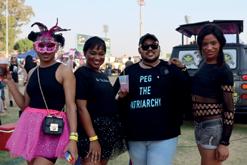
According to various students who wish to remain anonymous, UP is regarded as one of the most progressive universities in South Africa in relation to welcoming students from the LGBTQIA+ community and minimising homophobic attacks. The Centre for Sexualities, AIDS, and Gender (CSA&G) worked closely with UP and successfully implemented a trans protocol
document. This document enables students to selfregister with different pronouns, titles, and names, thus accommodating the diverse queer community on campus. The trans protocol document gives students the opportunity to embrace their identity.. On the other hand, it does not remove or prevent internalised homophobia or anti-queer attitudes that are deeply wired into individuals and society at large. The journey of self-exploration and the building of acceptance of who you are and identify as, is a stressful and confusing experience, often traumatising. People go through a great deal of mental and emotional trauma while trying to distinguish between who they are biologically and what they identify as personally. From the moment they identify as a queer individual, they become conscious of the hatred and rejection that can be associated with queerness.
Deputy director of the CSA&G, Pierre Brouard, highlights that all individuals are worthy of help and encourages students to make use of the university’s anti-discrimination policy and support structures like: the student council, the CSA&G, advisors in the residence system, and UP&Out. Brouard further recommends that in cases of violence and discrimination students should immediately report this to the transformation office or other relevant support structures. It is crucial to note that these cases are stressful and may be triggering. Especially in cases where the residence system is involved, as a student will often have to return to their accommodation after reporting a case where the abuse may continue and potentially worsen.
The residence system is also binary, which can put queer and particularly transgender students at a risk of receiving homophobic attacks. However, organisations like the CSA&G are working on projects to encourage UP to introduce residence options that will allow people from the LGBTQIA+ community to live in a safe environment free from any discrimination and rejection of their identity.
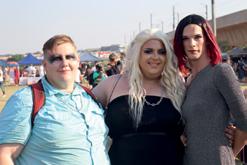
It goes without saying that there is also a safety concern where transgender or queer men make use of the bathroom facilities on campus. It has been reported, in an anonymous interview, that sometimes queer men make use of the female bathrooms on campus as they do not feel safe in the men’s bathroom. However, it should also be taken into consideration that we have a rich diversity of students at UP, including Muslim
Thabo Moenyane
More members of the LGBTQIA+ community are getting courageous and comfortable with coming out to their families, friends, and the public. However, homophobia is still something which people continue to experience in their daily lives.

First-year education student and content creator, Banele Shezi, recently came out as gay to the public on his social media platforms and faces homophobia on a daily basis “I love making TikTok videos and there’s always a bunch of homophobes that write homophobic slurs under my videos”, said Shezi. Shezi, before officially coming out to his family, educated them if he heard them using homophobic slurs after seeing gay content on television. Shezi did this so that when he came out, at least his family would be more receptive towards gay people. When asked what his family’s reaction was after he publicly came out, he said: “When I went back home for recess, my
cousin brother didn’t want to share a bed with me because of my coming out video.”
Shezi said that even though he continues to experience homophobia, he is not in any way shaken. He said that he knows there are far more people that love him. The same cannot be said about Sipho Mabuza, a second-year psychology student, who has since suffered from anxiety and low self-esteem because of the homophobia he has experienced after coming out about his sexuality. “I deleted my social media accounts because I couldn’t bear the homophobic slurs I got each time I posted a picture on my social media accounts as a feminine gay person”, said Mabuza. Mabuza indicated that he is getting professional help to deal with his anxiety issues and hopes to not care about what anyone has to say about his sexuality one day. “I am also aware of the internalised homophobia I now have, due to the homophobia I had and continue to experience, and I am also dealing with that”, said Mabuza.
Homophobia has evolved throughout the
women who fix their hijabs in the bathroom. In Islam, it is obligatory for women to cover their hair in the presence of the opposite sex, which in this case places Muslim women at risk when queer men use the female bathrooms. So, although UP still has steps to take to become all-inclusive, it is also vital to remain realistic.
Individuals, however, can take certain steps to improve spaces on campus for LGBTQIA+ students.

UP&Out chairperson Kherina Narotam encourages UP students to get involved in the events organised by UP&OUT, a structure that advocates for Pride and represents queer students on campus, to be a part of the change. Brouard also emphasises that “a lot of queer people have experienced a lot of hurt, and sometimes it can leave them feeling angry, bitter and very sensitive to other hurts”. Therefore, UP&Out events and discussions provide an informal peer support structure to help improve an individual’s mental well-being and to let people know that they are not alone. Moreover, they provide training such as sensitivity training upon request to individuals or groups to help alleviate internalised homophobia at UP.
Another anonymous student outlined that disagreeing with the LGBTQIA+ community does not necessarily make a person homophobic. They further explained that individuals should be able to adjust to the people they disagree with being in their space, seeing that the student body at UP is diverse and everyone should be respected. But it is critical to discern between disagreement and hate - as the danger of disagreeing is that it may foster hate.
In light of this, Brouard indicates that there is huge diversity within the label “queer”. Not only does the queer community focus on gender and identity but also on the different struggles and histories faced such as racial oppression, social class disputes, culture, age, and faith. It provides a sense of freedom for you to acknowledge who you are without any stigma or discrimination relating to your choice of religion, identity, ethnicity, etc. It invites and accepts individuals from all backgrounds regardless of their choices, making pride for everyone.
years but it continues to impact lives of those who are the unfortunate targets of abhorrence, prejudice, and violence. Homophobia stems from ignorance and a lack of education and can be perpetuated by a fear of the unfamiliar and
religious beliefs. Therefore, it is vital to educate oneself on gender and sexuality so that they change their behaviour towards members of the LGBTQIA+ community. Homophobia is, to say the least, senseless. Guard your homophobia.

On 10 August at around 22:00, a room in Block A of CampusKey’s Glyn building caught fire, spread, and caused extensive damage to several rooms. Although no injuries or deaths were reported, the fire caused extensive damage to three rooms and the building itself, costing thousands of rands. A resident, Anna Doe*, said to PDBY that the majority of the items in their room were destroyed and that “you don’t realise how much everything in your room costs”.They also lost numerous items in their room of sentimental value including items that they did not think they would have to insure. However, what is equally as pressing is the allegations regarding a lack of safety precautions in place at CampusKey Glyn, specifically that the fire alarm did not go off, which soon followed.

Several residents reported that the fire started in one room, and subsequently spread to the two rooms adjacent to it before causing the roof to collapse.
Doe, explained their version of the events saying that around 22:00 another resident, Dyllan Tweedy, was running up and down their hallway informing residents that there was a fire. Doe was unsure if this claim was true because they claim that no fire alarm nor did any sprinklers go off. Once Doe exited their room, the hallway was filled with black smoke, and Doe said that they could not see where the fire originated from but decided to exit via the staircase. This resident said to PDBY that two to three minutes after they exited the building, the roof collapsed on their room. Doe claims that Tweedy’s actions were the main reason that there were no injuries. Three other residents of CampusKey, including Tweedy, confirmed that no fire alarm went off. However, an air horn did go off, which Tweedy and the resident confirmed had been utilised previously during the building’s fire drills.
CampusKey told PDBY that the cause of the fire is unknown but did not confirm if the cause of the fire was still being investigated.
Resident John Adams*, who wishes to remain anonymous, said to PDBY that the cause of the fire could not be determined until the debris in place was cleared. Yet, CampusKey informed PDBY on 1 October that “the full reinstatement of the building has already begun, and our construction team is working around the clock to complete it as soon as possible.” Residents at CampusKey Glyn have still not been informed as to the cause of the fire, almost three months later. However, Doe’s main concern following these events was that the fire alarm did not go off, and the potential safety implications this has not only on CampusKey Glyn but on CampusKey South as well.
After the fire, allegations arose that CampusKey Glyn had minimal safety precautions in place prior to the fire:

specifically, that there was no functioning fire alarm or smoke detectors. In addition to this, PDBY also received a tip that the fire hoses did not work. Although PDBY could not verify if the fire hoses functioned on the night of the fire, PDBY confirmed the presence of fire hoses on various floors of CampusKey Glyn.
However, after a general survey of the CampusKey Glyn building, PDBY noted that there were no smoke detectors visibly in place in either the resident’s rooms or in the corridors or passageways of the building. PDBY also noted that there was no fire alarm control panel installed in the building, but instead, air horns were present in various glass cases. This offers clarity regarding concerns that the fire alarm did not go off - as there was no automated fire alarm to begin with.
Although the air horn proved to be an effective way of alerting student residents of the fire, it cannot be ignored that the time frame for someone to manually engage this air horn, could leave room for injury. This is especially relevant considering Adams said to PDBY that residents are required to go down to the reception to alert staff members if there is a fire, as they are not allowed to blow the airhorn themselves.

When approached for comment regarding the safety precautions in place, specifically the presence of smoke detectors, fire alarms, fire doors, and fire extinguishers, Lize Burns, the community leader for Campus Key said that “the incident occurred almost 2 months ago – I am not sure if the story is still relevant.” Burns continued by saying “the full reinstatement of the building has already begun, and our construction team is working around the clock to complete it as soon as possible.”
When approached again for comment Burns said “CampusKey always has all safety measures and precautions in place”. After another attempt at receiving comment Burns elaborated saying that “CampusKey complies with all health, safety, and fire regulation according to [their] occupancy certificate.”
However, CampusKey declined to expressly confirm that there was a comprehensive fire detection system and smoke detectors installed at the time of the fire, after numerous attempts to receive clarity on the situation. This could present a serious issue as it is required by “The Policy On The Minimum Norms And Standards For Student Housing At Public Universities” put in place in 2015 by Dr Blade Nzimande, the Minister of Higher Education and Training, that privately owned accomodations accredited by public universities must comply with certain minimum safety measures. These measures include the installation of smoke detectors in all passageways

However, CampusKey Glyn is not only a student accommodation but also a private accredited residence with UP, meaning that UP is responsible for vetting the residence and ensuring that it is up to scratch before renewing its accreditation on an annual basis.
UP’s accreditation process includes a checklist, which includes various minimum standards of housing discussed above, to be
completed by the accommodation seeking accreditation.
Kgomotso Legari, the Director for Residence Affairs and Accomodation, confirmed this stating that “the process of accrediting private accommodation is guided by the university’s accreditation policy, which gets the directive from the Department of Education’s policy on minimum norms and standards for student housing at public universities.”
What should be noted is that this checklist includes the presence of smoke detectors in passages/corridors as well as the installation of a fire control system. As stated above, a survey of the CampusKey Glyn building revealed that there are no smoke detectors installed in the passageways of the building. Although there is a “fire alarm” or air horn that can be manually enabled in the case of an emergency, it was not confirmed whether this meets the definition of fire alarm control box.
When PDBY approached Legari to verify if all accredited accommodations are required to have smoke detectors and a fire system control panel installed Legari responded by saying “there are many requirements […] the requirement of smoke detectors may be dependent on the size of a building, and as determined by the Municipality. However, the main document in terms of the accreditation process will be the certificate of occupancy from the Municipality, after the Municipality has considered certain requirements.”
PDBY attempted to reach Legari to follow up on this matter to establish if compliance with the minimum standards of student housing, as reflected on the accreditation checklist, are then not compulsory. However, PDBY did not receive a response from Legari before going to print. PDBY also reached out to Legari to question what the minimum standards and requirements for accreditation are and whether CampusKey Glyn received full accreditation status for the year 2022. Although PDBY did not receive a response from Legari, CampusKey Glyn is listed as an accredited accommodation on UP’s list of 2022 Private UP Accredited Accommodation Providers.
Although no injuries were reported and certain residents, such as Tweedy, have expressed that they are still comfortable residing in Campus Key following this incident, the lack of certain safety precautions in place should nevertheless be questioned.
*The identities of residents who are given an alias or listed as anonymous are known to PDBY
When approached for comment regarding the safety precautions in place at CampusKey, specifically the presence of smoke detectors and fire alarms Lize Burns, the community leader for Campus Key said that “the incident occurred almost 2 months ago
– I am not sure if the story is still relevant.”
Tumelo Dacius Lesufi
On 30 September, UP held a ceremony to inaugurate Justice Emeritus Sisi Khampepe as UP’s 10th chancellor - the first Black female chancellor of UP. Justice Khampepe’s tenure as chancellor commenced on 28 June, and will continue for a five-year term - with a possibility of renewal pending due process. The ceremony was held at Aula auditorium and the program was directed by Prof. Lucy Moleleki from the department of Biotechnology, Genetics and Microbiology.
In her 20 minute speech the new chancellor began by thanking the electoral college for electing her and paid tribute to her predecessor Prof. Wiseman Nkuhlu. “It is a great honour for me to address you today at my inauguration as
Franco Marais
From 3 to 5 October the annual Varsity cricket T20 series took place. With a tough opening game, two phenomenal displays, and a bitter defeat in the semi-finals, UP bowed out of the tournament. Yet, even with UP not being able to retain their title, it was still a tournament that they could walk away from with their heads held high.

Overall, the tournament gave UP a lot to think about when it comes to the up-and-coming northern league. However, what the two games against UCT and Madibaz showed is that UP has the talent and skills. That, combined with their grit against NWU and their never-say-die attitude against Maties, is surely enough to make anyone look towards the coming league games with optimism.

Read the full story by scanning the QR code to the right.
Franco Marais
chancellor of this distinguished institution, the University of Pretoria. I am deeply humbled to have been nominated and elected to this position. I would like to thank the electoral college of the university, comprising members of council and senate and the president of the convocation for entrusting me with this very important role over the next five years. I would like to pay tribute to my predecessor, Prof. Wiseman Nkuhlu who provided three consecutive terms of faithful service”, said Chancellor Khampepe.
Read the full story by scanning the QR code.

Tumelo Dacius Lesufi
On 28 September, LeadUPConversation held another thought-provoking conversation about The Business of Innovation, Collaboration and Creativity. The virtual conversation was themed ‘Telling Africa’s stories’ and was moderated, yet again by broadcaster Sebenzile Nkambule. The 23rd conversation’s panel consisted of vice-chancellor Prof. Tawana Kupe, James Ngcobo, Noxolo Dalmini, Prof. David Medalie and Allison Triegaardt. The moderator opened the conversation by explaining the framework of the conversation. In her opening, she outlined the conversation by discussing current and future trends in telling African Stories, the effects of streaming platforms, AI(Artificial intelligence),
and the creative industry business.
Read the full story by scanning the QR code above.
On 28
August
the penultimate game of the season took place - a sizzling exchange of the finest that Res rugby has to offer. It saw OP claim victory over Sonop with a clinical 29-18 win. It was a game filled with big hits, excellent skills, and a few fatal errors. It was a fixture worth the wait and a phenomenal way to close off the rugby calendar.
Read the full story by scanning the QR code.

Mothusi Mokalane and Tumelo Lesufi
On 22 October, AE du Toit Auditorium was the venue for students to see UP’s first public speaking championship go down. Seven finalists battled it out for the best speaker of the maiden championship where nursing student, Onyinyechukwu Maryjane Igbojinna, was crowned the winner.
Igbojinna’s topic was on content creation as being a solution to unemployment eradication, and she indicated that she chose this topic because “[she] was watching a few videos on social media and thought content creating, let me speak about that”.
Igbojinna indicated that she advices more students to take part in public speaking – “public speaking is such a vital skill that we all need to have because when we grow up one day, whether we are healthcare workers or whether we are in the corporate world, you need to learn how to speak to people.
Elma Akob, the founder, and CEO of Elevate Africa partnered with the championship was the programme director for the day. “With this maiden tournament done, it can be seen as our flagship tournament for more to come” said Akob. Akob added that “UP is the first of many more to come, we intend to introduce this throughout South African universities moving forward. We want to have more tournaments, regional and national championship in due course”.
Read the full story by scanning the QR code.
On 15 October, PDBY attended the young corporate leaders (YCL) dragon den pitch hosted at Brooklyn lodge. Chairperson of YCL, Asanda Mataba, highlighted that they are a UP student society that caters to student entrepreneurs within the university. This event was based on a BBC and Japanese television reality show where entrepreneurs have a limited time to present a business idea to a panel of judges (also referred
to as dragons) who in return will offer funding.
The entrepreneur of the day was Owen Blauw. Blauw’s officially started his business, Chick-Chick, after the peak of the COVID-19 pandemic as an online delivery service that resells and distributes poultry products. Blauw requested R20 000 from the dragons. During the reward and feedback ceremony, the judges suggested that they are on board with fully funding Owen Blauw with the requested amount and potentially more.
Read the full story by scanning the QR code.





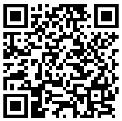
On 5 October, the Student Representative Council (SRC) and the International Student Division (ISD) called for an emergency meeting to discuss the incredibly low number of students that would be taking part in the International Students’ Day. The SRC and ISD claimed that students often complain that the university does not host enough events, but when UP does, no one is willing to participate. Furthermore, they urged students to attend International Students’ Day, warning that if the participation number did not increase, this event would be cancelled. On 7 October, International Students’ Day commenced as scheduled at the amphitheatre with great success.
Various countries such as the Netherlands, China, Eswatini, Zambia, Zimbabwe, Japan, South Korea, and Italy participated in the cultural song and dance event, the poetry event, and the Mx UP International (UPI) contest (previously known as Mr and Ms UPI). Around 13 exhibition stalls were set up before the official event, giving students the opportunity to engage with and learn about other people’s countries and cultures.
countries received awards for their outstanding performances: Zimbabwe, Eswatini, Ethiopia, South Africa, and China. The Mx UPI winners included representatives from Eswatini and Zimbabwe, who came in first place for not only the Mx UPI but received awards in the majority of the other categories.
Vice-Principal Prof. Themba Mosia addressed the event, highlighting the importance of International Students’ Day, as it brings the UP community together to celebrate a rich diversity of different cultures and experiences. Prof. Mosia indicated that UP is home to over 3000 international students from approximately 110 countries around the world. The number of international students studying at UP has decreased, and Prof. Mosia pointed out that UP is working on attracting more international students. At the same time, the university is encouraging local and international students to become involved with one another, as UP is a platform for students to share culture and experiences.
PDBY conducted several interviews, and it has been noted that most international students perceive the local UP students as very friendly and hospitable. All the students from other countries have different reasons for being here in South Africa. Some have lived a large portion of their lives in SA, others are exchange students, and then there are the students who are studying full-time at UP. The Zimbabwean representatives explained that the reason why they wanted to study at UP is because they wanted diverse information and to experience new things so that they could take back new ideas to Zimbabwe. In contrast, the representatives from Japan, the Netherlands, China, and South Korea emphasised their interest in the diverse languages and culture of SA, along with the beautiful nature. Furthermore, South Korean students explained how they enjoy camping and braaing, plus the general laid-back attitude of South Africans. Additionally, the representative of Italy, who has a particular love for political studies, revealed that he wanted to know the way of life and mentality of people from Africa. He expressed his admiration for Africans when he mentioned his trip to Robben Island and how he was amazed by the liberation movement as well as how people eventually put their differences aside to build a new country.
On the other hand, international students
have brought up their discomfort in relation to the high crime rate in SA, particularly around UP. Moreover, international students have reported that one of their biggest challenges at UP is the language barrier.
South Africa has 11 official languages, which does present challenges towards international students if both parties to a conversation are forced to speak a language that is not their mother tongue.

Additionally, there have been reports of culture shock and international students struggling to adapt to the UP environment during their first few weeks. Some individuals insinuated that they feel unwelcome at UP and have been encountering forms of discrimination. An example of this is people assuming or asking if people from China consume dogs. This is a stereotypical view, and it is regarded as offensive to pose this question to Chinese students. Another point worth adding is that students have been mocking and imitating other students’ languages and accents. Although it may be seen as a harmless joke, someone could perceive these imitations as annoying and offensive.

International students expressed their concern with regards to safety but also expressed that they would like for the university to put in more effort to ensure that international students are offered receive more job opportunities in South Africa. Various international students also pointed out that they wish for local UP students to be present throughout orientation week. According to Prof. Mosia, international students are allowed to bring any challenges they face to the international students’ office, as they would
Gontse Mabaso and Musa Mngomezulu
Spooky season has begun, and people young and old celebrate Halloween. Whilst everyone will be out and about in their impressive costumes, it is imperative that we know what Halloween is and how it is celebrated.
According to an article from History. com, Halloween is a holiday celebrated on 31 October, and started as a day when Celtic people dressed up to celebrate their ancestors who have passed on. But the day has found its way to our shores, and has taken a fun new twist.
Did you know that historically, people dressed in costumes to ward off restless spirits but Halloween has since transformed into something fun rather than scary. Although people are no longer trying to be ghostbusters to chase spirits, the day is still celebrated in spooky ways with the history of costume wearing still being preserved 2000 years later.

We spoke to Xenin Steenveld, a student who resides in America, about her first American Halloween experience. She mentioned that she is excited to celebrate
the day because it is extremely celebrated in her neighbourhood and all around. Steenveld added that people decorate their houses and stores, and even change their entire look, including packaging, to fit the Halloween theme.
The club culture in Hatfield has caught on to the trend because students love a good time, whether it is chasing after good vibes or you are just someone who enjoys the practice of Halloween. A lot of people understand the concept of Halloween from watching their favourite American films and series, but how we as a country, especially SA’s club culture, got assimilated into this trend remains a mystery. PDBY spoke to a regular club goer, who would like to remain anonymous, who said that clubs like making money and will do anything that brings money even if they do not understand the history or purpose of the practice. When asked what their go-to costume would be, they responded that “anything cheap would do”.
In essence, Halloween has become an increasingly popular trend in South Africa and has morphed into a time where people come together while wearing their favourite costumes. So, if you are ever in the mood to dress up as your favourite movie characters, like Wonder Woman or Spider-man, the time
is now. But, did you know that Halloween is not the only day where people wear costume-like attires and celebrate.
Guy Fawkes day or ‘penny penny’ is celebrated on 5 November, and is often celebrated in townships where children of different age groups take to the street, cross-dress or dress up in their guardians’ bestoversized dresses and suits. They then go door-to-door dancing, and instead of getting treats, ask for money from neighbours. One can even mistakenly understand it as a South African version of Halloween. Like Halloween, Guy Fawkes day has a rich history that has been skipped over by kids who rather see it as a day they come together and have fun.
In light of the cross-dressing the day can also be viewed as the children’s way of flattening gender roles and normsunknowingly challenging societal systems. If the practice is preserved, in the future it can be a very powerful tool that teaches young people to normalise gender fluidity and so much more, especially in townships where many people are unknowledgeable of different sexual orientations.
It goes without saying that these two
gladly assist and fulfil whatever need they may have. At International Students’ Day, questions were raised in relation to how the university will ensure that international students are integrated into the broader UP environment. UP responded by saying that the university has a number of societies and student structures, suggesting that international students should join whichever one that closely represents or appeals to them.
Prof. Mosia proclaimed that the international community significantly contributes to enriching the culture and experiences of the UP campuses. He continued, stating that “we are all united in our desire and diversity” and that this occasion is a great opportunity to experience the world. With respect to learning and expanding cultural perspectives, international students should not be seen as a threat to the local students. International students are here to learn and experience our unique culture and the history of our people.
Illustration: Cleo Qin holidays share similarities and one could say that Halloween and Guy Fawkes day could be cousins, figuratively speaking of course. It is great to see people celebrate Halloween and it would be just as great to have the spirit of Guy Fawkes day or ‘penny penny’ to catch up to everyone who has not experienced it.
With that being said … when dark shadows form and costumes are seen, the moon will shine brighter cause ‘tis Halloween that’s near!

Ayesha Osman
The presence of the queer community has seen a rise in the past few decades, and inclusion is slowly becoming a reality. However, the queer students at the University of Pretoria feel “seen and not heard”. This is a reality for UP’s official queer society UP&Out. PDBY has interviewed the chairperson, Kherina Narotam, and a few queer students to gain insight into the university’s efforts to represent its queer students.
UP&Out’s perspective:
When asked about the representation of UP&Out by the university and any university-affiliated organisations and social media pages, Narotam Narotam responded: “They [the University
of Pretoria] just allow us to exist.” According to Narotam, the society registers every year like any other society, and it is a common misconception that the university endorses the society; this, is not the case. “We often partner with and endorse the CSA&G (Centre for Sexualities, AIDS, and Gender). They help us tremendously; we rely on them for many things, and without them, the society would not have enjoyed the success it has since acquired. They provide us with everything we need and are even gracious enough to give us office space in the building.” She then raised the point: “The university makes decisions about the rights of queer students and consults us afterwards to promote their ideas. For example, UP&Out was not consulted on the creation of the Trans-micro site. Although this is a great initiative, the University made it out as though UP&Out had an input. We did not. We were simply invited to the celebration of its launch.” Lastly, she thanked the societies that support UP&Out, such as TUKS 4 Climate Justice, debate society, a few religious societies, the disability unit, TEDX and ManDown. She also stated: “We would appreciate more representation, but it is not something we expect or feel we are entitled to.”
Narotam was asked what the university can do to ensure that representation and the needs of queer people are satiated. She replied: “We would appreciate if the university consulted us [UP&Out] on their plans. We have suggestions and solutions, but they do not really care too much about what we have to say. Taking a more humanistic rather than political approach to queer rights may help change a few of the substantive issues experienced by our members daily.” She further stated that despite the university’s efforts for inclusivity and representation, like with the establishment of the two gender-neutral bathrooms on Hatfield Campus and the implementation of the Trans-Protocol, there is a lack of queer safe spaces on all campuses. “The university can thus ensure that its anti-discrimination policies are implemented on all levels of the institution with visible change. Subsequently, leading to the creation of queer safe spaces for students and UP employees alike at our campuses - including the establishment of genderneutral bathrooms not just in a single area of campus, and certainly not just one campus,” stated Narotam.
A queer students’ perspective:
As much as UP&Out is the only queer society on campus, multiple queer students do not know of the society or simply do not attend their events or initiatives. PDBY has sought out the opinions of students outside of UP&Out to ensure that their voices are heard,
Vuyiswa Fumba
The use of social media to efficiently share information, especially monumental and rapidly changing news, has revolutionised how news is shared. However, with this innovative development, often comes the social obligation to share input on trending news, regardless of how little you might know about the topic or the nuance that surrounds it.
Dylan O’Brien is a famous actor and famed male feminist known for reacting to viral news with a trite tweet to display his activism. For instance, he responded to a report about the overturning of Roe v Wade with the words “f**king evil” which sparked other celebrities adopting this method to react to news. This is called the Dylan O’Brien effect.

Social media has placed the onus of speedy responses on regular people and celebrities alike, resulting in a new era of social media activism. Having such open access to strangers on the internet has led social media users to being interested in everything from your breakfast to your most deeply held morals. Whenever news breaks, people are quick to turn to social media without a critical mind. That is, usually, when the mass repost begins, and everyone from Angelina Jolie to your cousin who never posts anything, decides to like and share the viral infographic with its accompanying hashtag. Everyone’s eyes then avert to that one celebrity or family member, who has not posted or said anything, and we all look on with scrutiny and pointed questions. Why haven’t they said anything?
The Dylan O’Brien effect happens when social media masses effectively coerce uninformed people (mainly celebrities) to make declarative statements. Social media activism has increased during the last few years due to the COVID-19 pandemic. So why does this new approach to
activism often fail?
Social media consists of millions of regular people. That being said, the average social media user often does not have the required knowledge to share valuable input on all pieces of important news. Not only can this be a gateway to mass misinformation, but sometimes, the influx of posts can clog up reputable sources. For instance, during the 2020 US Black Lives Matter protests. Instagram users resolved to post black squares to show solidarity with American protesters against police brutality. While this was done in good faith, it did more harm than good because helpful updates on the ongoing protests disappeared and were lost in Instagram feeds that became crowded with images of black squares. Despite people’s good intentions, much of social media activism has become performative. People can spread awareness about certain news and utilise this as a Trojan horse to feign virtue and compassion for their own image. So, social media activism often means little more than a gesture and rarely leads to measurable change.
However, it’s not all bad!.This form of activism allows for information to be shared quickly. Every day approximately 95 million Instagram posts are made. Regular users are highly likely to come across important news and causes to support from this staggering number (not considering other social media apps and their statistics). Through social media, news can be consumed in a straightforward way, and the characteristic features of personal engagement, such as stories or direct messages, can also help people understand things more clearly. This could not be achieved through radio updates or newspaper reports, and the modern tendency toward online news might lead to a better understanding of news issues in the long term. Additionally, in the 21st century, your online persona can be used as a portfolio that reflects your values.
especially during October, South Africa’s national Pride Month. The consensus is that there is a lack of queer representation and inclusivity, a prevalence of stereotyping and discrimination among cisgender and heterosexual students, and this is complemented by a lack of queer events and safe spaces on all campuses. Student Reabetswe Monaledi says “On a large university scale, I believe we are still viewed as ‘out of sight, out of mind’.” She suggests that: “more queer stories and more queer events need to be marketed” and that “ the rest of the student body stands firm in their allyship by supporting queer people, spaces and events.” This is reiterated in another student’s - Skylah Kadin - statement: “I believe more of this representation, whether in media or in person, would ease tension around LGBTQIA+ topics.” The final statement from anonymous student highlights that the discrimination against transgender, non-binary and gender-nonconforming students are still prevalent on our campuses. They said: “The bias and ignorant rhetoric around gender-nonconforming and trans individuals is very prevalent throughout campus, and is seen between students and lecturers/tutors, grounds workers and other students. This is due to the lack of representation and education.” They suggest that: “Lecturers should respect the identities of those they educate and learn to be willing to take correction and be active in not misgendering anyone. Queer psychologists and specialists on campus would make all the difference and a support structure for students struggling at home and with academics because of their queerness.”
While the past few decades have seen a rise in queer prevalence, students of Tuks feel underrepresented and have come up with suggestions on how to ensure their inclusion. The University of Pretoria has work to do regarding the representation of queer students and staff members. Although, UP is moving in the right direction such as establishing two gender-neutral bathrooms on Hatfield campus, there is still a lot of work to be done.
*PDBY reached out to UP for comment on this matter, but did not receive a response before going to print. Any reply supplied by UP will be noted on pdby.co.za
Students can find out more about UP&Out on the following social media platforms:
Email: upandout.tuks@gmail.com
Instagram: @tuks_upandout
Website: https://upandout.org.za
Offices: Akanyang Building 2-51 (next to Vida e caffe)
Image: Twitter.com
Social media activism can help many people showcase what they stand for and easily find forums of people that are similarly inclined to a common cause. By spreading awareness and generating mass support, social media activism can be used as a tool for change. Virality and the responses of regular social media users can elicit helpful and practical courses of action such as petitions that can potentially lead to significant change.
It is easy to want to add your input on everything you come across, especially when social media encourages responsible and compassionate usage. However, it is essential to remember: “not everything needs your freezer-burned take” Instead, try to further your understanding of matters that are important to you or politically and socially significant. If you need a social discussion about it, consult close friends and family who are able and willing to help you expand your knowledge of it in practical ways.
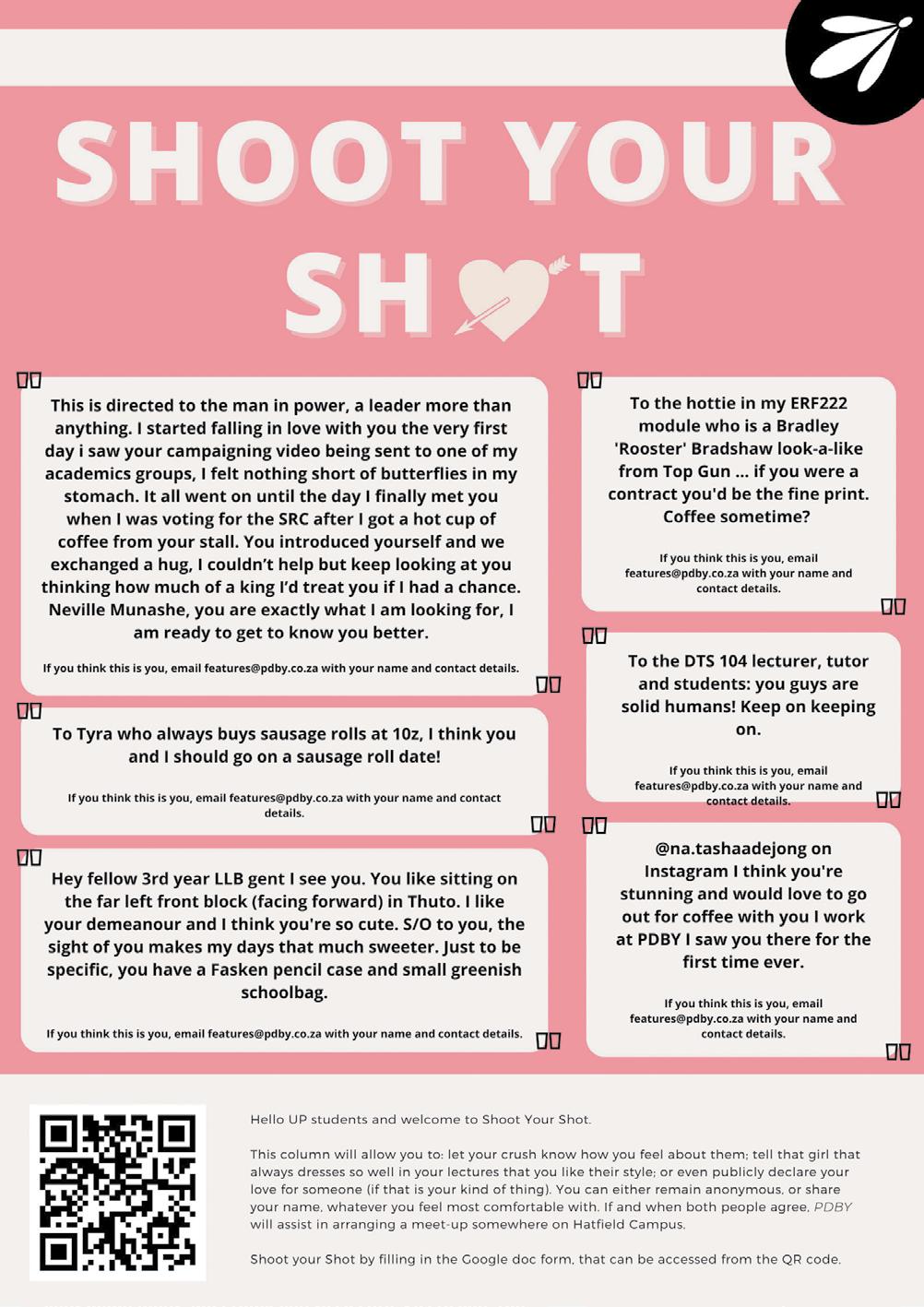
As discussed in PDBY’s August 2022 edition, Pan Macmillan South Africa supplied varying works that allow readers to dive into the concept of escapism. Now, with some of its gorgeous second-half of the year releases, it is the perfect time to provide a reading list for that post-exam, pre-holiday limbo. Most readers found their love for the worlds within pages from a young age, and eight titles will be recommended for the diversity of student’s reading interests based on what sort of reader you were pre-university.


Another author considered to be an LGBTQIA+ young adult author is Casey McQuiston.The concepts of time and the present are central in her newest novel, One Last Stop, which features the growing view of a realist slowly starting to believe in love again. A recommended reading list would not be completely without a hearttugging sense of hopeless romanticism. As said previously, McQuiston is for those readers who found themselves smitten with Alaska Young, Miles Halter, and Will Grayson.
characters become part of a world they barely understand, unlikely alliances are formed, a seemingly emotionless group becomes very emotional, and each individual becomes the opposite of who they expected to be. This series is objectively brilliant, with its ability to write about ideas so mystical and yet make them appear ever so realistic. As one further immerses themselves in the story, they lose all preconceptions they had from the first book and realise that those who appear the most put together, are truly more unhinged than those who show their cards.
If you were the type of child that enjoyed reading encyclopaedias for fun, or simply to impress adults with your vast stores of knowledge, you may be the type to read the following during time off. These titles are recommended for the purpose of making conversation with those uncles at festive dinners, or for picking a little post-pudding debate about the complexities of varying social issues. They can also be used to drop unsolicited facts about populism or land reform every time the parents ask questions that you would rather avoid.
The first three titles are written by the same author, Aiden Thomas. As a young adult author, Thomas has created works for those who grew up on novels such as Narnia and Percy Jackson. Thomas draws the audience in through mystery and undertones of romance. His works are unique in the sense that they can be considered as LGBTQIA+ fiction in the most natural sense of the word, and not for the sake of representation purposes. Thomas’ books represent themes of unexpected loyalty, tied in with the complicated nature of processing trauma through the lens of a young adult book.
While breaking away from a more mystical, romantic lens, the next recommendation is for those who prefer a more historically based form of mysterious happenings.


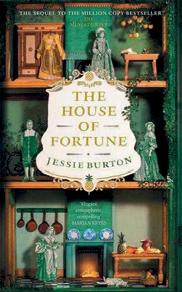
If you were a child who obsessively read Horrible Histories only to morph into the teenager engrossed in Pride and Prejudice, Sense and Sensibility, and Jane Eyre, this may be the book for you. But you should also give it a try if you believe you share the same twisted sense of humour as uproariously chaotic author Marian Keys, a strong endorser of this title.
This title is nonfiction, and although not a light read, it is definitely worth the effort and time it takes to absorb. Mabasa tackles a topic that has been part of South African discourse for the entirety of most young adults’ lives, but from the perspective of someone who has experienced land dispossession. She does not claim to know all the answers, but provides solutions from first-hand experience, and that is what makes this title refreshing.

The Atlas Paradox (Olivie Blake)

Blake’s titles were written for those who had a Secret Seven phase in grade six, a Nancy Drew obsession in grade 7, and made Harry Potter their entire personality from ages 13 through forever. The Atlas Paradox, the well-awaited sequel to The Atlas Six, provides even more context on the serious and untrustworthy Alexandrian society. As the remaining
In the Name of the People, a title written by Tendai Biti, Nic Cheeseman, Christopher Clapham, Ray Hartley, Greg Mills, Juan Carlos Pinzón, Lyal White, is the final recommendation of this reading list. The interesting nature of this piece stems from the multiple authorships, resulting in viewpoints from not one or two people, but seven. This provides a sense of thorough research and reliability throughout the reading process. As expected, this is a thought-provoking piece, almost written in an essay-like format, discussing the role of populism in today’s society. Guided insight is given into the discussion surrounding the far left, versus the far right, prevalent in today’s political sphere. There is no quote that can entirely capture the multitude of complex thoughts written, and this is the type of book read of one’s own accord through their understandings.
 Cemetery Boys (Aiden Thomas)
The Sunbearer Trials (Aiden Thomas)
Cemetery Boys (Aiden Thomas)
The Sunbearer Trials (Aiden Thomas)
“People like me don’t get to live normal lives, Jordan.”
“But there was something about the look on Julian’s face. A strange stillness as he sat there quietly, a watery reflection of the boy he’d once been.”
“I would tear this city to the ground before I’d let you take him from me”
“So steady and beautiful and close, too close, never close enough, and August is so completely, irreversibly, spectacularly screwed.”
“her anxiety seemed to haunt the standing space between the five initiates, unspoken - existing only in the promises they had made to one another.”
“I walked away with the knowledge that there might be a place for me in pursuit of justice in the commercial world, although the pieces had not come together yet”.
Rebecca van Besouw
As Pride month celebrates the full spectrum of LGBTQIA+ identity, representation in the literary world is increasingly important. For those interested in a range of local and international texts, here are ten books that examine and celebrate various aspects of the queer community.

This collection of writings by many queer Africans includes essays, short stories, poetry, and letters. Showcasing the diversity of the LGBTQIA+ community, it links history, identity, sexuality, and personal expression in a celebration of all things queer in South Africa.
Such a Lonely, Lovely Road - Kagiso Lesego Molope
Kabelo is destined to go to medical school and make his parents proud, but his perfectly planned life is thrown into disarray when he falls in love with childhood friend Sediba. Examining such topics as township life and compulsory heterosexuality, this novel is a heartbreakingly relevant tale of queer love in South Africa.
Collective Amnesia - Koleka Putuma
Koleka Putuma’s debut collection of poetry explores ideas of history, memory, religion, and the continued issues faced by Black women in South African society. Her poems offer an incisive look into the experiences of a queer woman who must navigate a world that does not accept her while still being true to herself.
You Have To Be Gay To Know God - Siya Khumalo
Drawing on Siya Khumalo’s experiences as a young man living in a Durban township, this book depicts the often uncomfortable relationship between Black queer identity, religion, sex, and politics. With refreshing honesty, it explores the complicated relationship many queer South Africans have with religion and cultural expectations.
The Quiet Violence of Dreams - K. Sello Duiker
Depicting the life of Tshepo, a university graduate who finds
himself working at a gay massage parlour in Cape Town, this novel reflects the searing voice of its author. Though not for the faint of heart, it examines urban life in South Africa from a unique perspective.
Ace - Angela Chen
Angela Chen’s study of asexuality in a sex-obsessed society is a must-read for its depiction of the diverse spectrum of asexual people and their experiences. This book combines sociological research and personal memoir to ask pertinent questions about the nature of sex and desire (or lack thereof).
The Song of Achilles - Madeline Miller
For anyone who is interested in mythology or epic love stories (or both), The Song of Achilles is a BookTok sensation for a reason. Set during the Trojan War, it is a gorgeously written and deeply affecting tale of young Patroclus and his love for famed warrior Achilles.
Gideon the Ninth - Tamsyn Muir
Gideon is a young queer woman living on a distant planet, who also happens to be a necromancer. This unique mix of science fiction and gothic fantasy features a fast-paced and exciting plot, as well as a plethora of queer characters. For anyone interested in fantasy, it is the perfect escape from the mundane world.
Under the Udala Trees - Chinelo Okparanta
Under the Udala Trees follows Ijeoma, a young girl who experiences civil war in Nigeria firsthand and is sent to live with family friends. There, she meets a girl who she eventually falls in love with, sparking conflict and causing her to realise the importance of living as one’s true self.
Meanwhile… - The Qintu Collab
Meanwhile… is a breathtakingly creative graphic novel written by several authors from Botswana, Kenya, and Zimbabwe. With beautiful art and engaging stories, it covers many aspects of the contemporary African queer experience, focusing always on the unfinished, the imperfect, and the human.

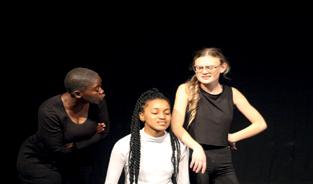 Dylan Botha
Dylan Botha
Art is often seen as a tool to make the world a better place. This has been affirmed during UP’s AntiDiscrimination Week, which ran from 26 to 30 September. The UP Transformation Office and second-year BDram students used the performing arts as a platform to address social matters students are faced with on a regular basis, such as stalking, gender-based violence, racism, and discrimination against those living with disabilities.
Taking a walk through UP’s many beautiful hallways, you are bound to find people from all corners of our beautiful country. The buzz you often come across at the Aula grass consists of many different languages, cultures, genders, and personalities – and that is what makes it so beautiful, is it not? However, many students still face “othering” for being different, or for straying from the “norm”. Discrimination remains the root of several societal issues we face daily, on and off campus.
The following plays were seen during this week: Unseen, which told the stories of people living with disabilities and how they are faced with the same struggles as able-bodied persons; U People, which discussed the issue of racism and its many side effects, such as language exclusion and tribalism; Blame, which unpacked the struggles of gender-based violence and how this problem is often more complex than meets the eye; Nothing Happened, which exposed how gender-based violence is often overlooked in our social circles; Around the Corner, which moved its audiences with a shocking storyline about how serious stalking could be if not dealt with; and, finally, Gastronomies, which revealed the snowball effect of the evergrowing class divide and resulting power imbalance in South Africa.
According to second-year student, Nzuzo Dlamini, they rehearsed their performances for more than five weeks and spent a lot of time researching, interviewing, and observing people on campus in order to depict a true sense of reality onstage. PDBY also spoke to second-year BDram student, Wianné Fourie, who said “I was never aware of how influential
and evident these matters were until we started researching [them]. I am so glad we were given the opportunity to raise awareness. I believe that is where change starts”.
These plays sparked conversation among audience members, leaving them to ponder the seriousness of these matters and their own responsibility in enacting change in their environment.
For more information, contact the Transformation Office via email (transformationoffice@up.ac.za) or WhatsApp (012 420 8404).
My name is Ashleigh, and I have been the Entertainment editor of PDBY for over a year now, and this section has been my pride and joy. This is my final issue as editor, and this is my last playlist, so I thought I would just mention how much I loved curating these playlists and looking at the wonderful musical talent of South Africa. PDBY has a Spotify account (@pdbymedia) of all the music that has been added to these playlists, but you can also scan the QR code to give it a listen. Here’s a list of some of my favourite South African musicians ever. Please enjoy:

“Blue Eyes” - Springbok Nude Girls
“Fine Again” - Seether
“The Knife” - Zebra & Giraffe
“Genie” - Springbok Nude Girls
“Tattoo” - Desmond and the Tutus
“Secret Police” - FUZIGISH
“Stereo Kids” (reprise) - Pyramid
“Long Pig” - Squeal
“Home Wrecker” - The Dirty Skirts
“QQ Me” - The Finkelstiens
Grace by Barbara BoswellVuyiswa Fumba
Grace is a fiction novel that explores topics of particular importance in a South African context, such as genderbased violence, the patriarchy, and loss. The author, Barbara Boswell, uses her experiences growing up in the 1980s and 1990s to paint a realistic picture of the country’s postapartheid condition.
The novel, set in a Cape Town township in the 1980s, follows a girl named Grace and her dysfunctional family as they navigate their brutally complex relationships – particularly her downtrodden mother and abusive father. She is, however, able to push past these obstacles and create a beautiful life for herself. The unexpected return of a childhood friend, though, reveals that she has more of her traumatic past to work-through than she had previously thought. It is a compelling read, and the author showcases the generational effects of abuse, violence, and trauma with great skill.
The book shows that breaking a cycle of abuse is not easy and that reinvention takes time, effort, and the confrontation of one’s deepest fears and darkest memories. Grace is a great and worthwhile read for anyone who has ever needed an open discussion about domestic violence and its long-term effects.
“I was never aware of how influential and evident these matters were until we started researching [them]. I am so glad we were given the opportunity to raise awareness. I believe that is where change starts”
Fatima Bala
What does ‘Pride’ mean, and why is it important in 2022? The answer could, perhaps, be found in a brightly decorated mural right here on campus.
On 1 October, Tuks’ UP&Out (a student-led LGBTQIA+ group which aims to educate, advocate for, and bring awareness to LGBTQIA+ issues) held a wall-painting event, kickstarting the celebrations for South Africa’s Pride Month.

The event had a good turnout, as students were invited to paint a new mural. Everyone got to work, painting with brushes and some with their fingers, filling the wall with colour and images that expressed their identity. The wall was adorned with rainbows, flag colours, slogans like “it is not a
phase”, “girl in red?”, and much more.
PDBY spoke to UP&Out member, Clara van Niekerk, about why they believe that murals like these are so important. Van Niekerk, who uses they/them pronouns, spoke about how, in the past, UP students have painted new murals like these and that it is important for people to show up each and every year to paint a new one in order to show that, “we are here, and we won’t go away”. This is why Pride Month is still important in 2022 - it is the expression of queer identity, and pride in that identity, which is still often considered as a political act in our society. As a slogan on the mural says, “queer joy is resistance” – and Pride is a celebration of queer joy.
You can check out their mural on the wall close to Merensky.
Ladies and gentlemen, boys and girls, gather around for the crack of the whip against Nala the lion’s back. McLaren Circus, the only circus in South Africa that still uses animals for entertainment, paid its unwelcome visit to Pretoria.
The McLaren Circus opened its doors on 24 March 2005 and is still a disappointing reminder of the lack of animal rights within South Africa’s entertainment scene. Ban Animal Trading (BAT), a South African non-profit organisation, has memorised all the ways in which to oppose such cruelty, and has set up signposts to guide others. Concurrently, the National Society for the Prevention of Cruelty to Animals continues to use the limited legal and financial resources available to expose the cruel organisation that is the McLaren Circus.
20 August marked another day of protests for BAT as McLaren Circus set up in Montana Park. It is the closest the circus has ever been to Hatfield, and thus warranted a visit. The protest was led by animal rights activist Herman H Le Roux, a celebrity within the circus. McLaren Circus staff pointed and chanted, “We know who you are, Herman”, before their repetitive performance of shouting and swearing commenced. However, upon realising that their vulgar words did little more than bounce off Le Roux’s unyielding stance, two staff members proceeded to urinate in front of him. McLaren also provided various antidotes to ensure a lack of care about the animals’ well-being, with their “vigilant” security parading guns to ensure a constant state of cognitive dissonance. However, no matter what McLaren does, Le Roux’s voice will not be silenced. When asked what message Le Roux would like to convey, his words echoed through the cages and tents - “in 1994, South Africa was liberated for all its people, but it was not liberated for animals.”
South Africa’s legislative landscape provides limited protection for the interest of animals to a distressing point.

Megan Theunissen
When Francois van Coke, the lead singer of Fokofpolisiekar, collaborates with artists like Tasché, Jack Parrow, Elandré, Van Pletzen, and many more, passion sparks into an inferno of record-breaking entertainment within the Afrikaans music industry.
The Animal Protection Act 71 of 1962 (APA) remains South Africa’s primary source of legislation regarding the protection of animals, and although it has been amended the latest amendment regarding the content of APA dates back to 1993. Thus, South Africa’s animal welfare legislation has barely been revised since South Africa was in its pre-democratic state, more than 28 years ago. Section 2 of APA boasts clichéd attempts at protecting animal welfare and states that persons inflicting “unnecessary suffering” on animals through methods such as “cruelly torturing” could risk a whopping fine of R200. With such regulations in place, it is not surprising that McLaren continues to operate with minimal repercussions.
On 28 March, the Cape of Good Hope’s SPCA conducted a routine inspection regarding the welfare of the McLaren Circus animals and reported six contraventions of the APA. The SPCA reported an isolated lioness confined to an inadequate compartment with no accessible drinking water. Furthermore, it reported signs of distress shown by the various animals due to the lack of environmental enrichment, unhygienic cages, and an overall fly problem - all of which poses health risks.
The circus has most recently visited Benoni, and despite an abysmal turnout, it seeems that the circus has still not rectified any of these contraventions. Animals are still confined in spaces far too small for comfort, and there is still minimal upkeep being performed on the actual property of the circus. The presentation of this institution indicates more about their treatment of animals than meets the eye.
More information regarding the movements of the circus can be found at @bananimaltrading, and the most effective way to prevent this type of entertainment exploitation is to boycott such behaviour and encourage others to do the same. Skip the treadmill and walk with a poster instead. Take protest photos for Tinder; activism is hot. Go to Ban Animal Trading’s website to find a date for a protest near you. Participating in a protest entails showing up at the given time, holding posters provided by BAT, and getting rowdy.
After two years of suppressed showmanship due to COVID-19, Francois van Coke & Vriende delivered a fiery performance with songs old (‘old’ being synonymous with legendary), new and oh-so-taboo. The performances of “Early B”, “Spoegwolf” and “Die Heuwels Fantasties” came bursting into the SunBet Arena at Time Square on 25 September, closing out Heritage Week’s weekend festivities. About 8500 tickets sold rapidly after the opening of their sales. Following the social media announcement of all the performing artists, the desire to attend became all the more irresistible. Half the audience stood at the foot of the stage, whilst the other half clambered into their tightly arranged seats. A little after 18:00, the arena was brimming with a sea of eager faces ready to feast their eyes on the musicians that promised to entertain.
With Van Coke having released his latest solo album, Kanniedood, two days prior, the performance felt fresh and unexpected in its debut with new artists, new songs and plenty of new collaborations. When opening with an innovative and rock-n-roll song, “SOS”, the stage was set alight. Songs that stood out – as always – were “Dagdrome in Suburbia” (featuring Spoegwolf), “Komma” (a heartfelt favourite) and the very convincing “Ek lewe ek belowe” (featuring Die Heuwels Fantasties).
However, a few new songs that might join the legacy soon are (the aforementioned) “SOS”, “Hartseer Freaks”, “Nie Alleen Nie”, and “Rus in Vrede”. These new songs flooded social media during (and after) the concert and are currently climbing the charts on local music streaming platforms. “Kanniedood” is on its way to outrank van Coke’s previous albums and claim first place in the hearts of every South African.
The most effective way to prevent this type of entertainment exploitation is to boycott such behaviours and encourage others to do the same
“


With many athletes at UP complaining about how hard it is to train and study at the same time, one PDBY staff member could not stop themselves from asking the all-important question: How hard could it be? This staff member challenged themselves to follow the diet and training routine of UP soccer player Katlego Thupana.
Day 1
The recess week began with projects to attend to and articles to write. I began the day with Thupana’s breakfast which consists of: 3 eggs, 2 slices of bread with avocado, cheese, and tomato. This is a far cry from the energy drinkfilled breakfast that I am used to, however, it was a pleasant change. After having breakfast and getting my work done, it was time to work out. This began with a 15-minute run which, according to Thupana, is his warm-up, but to me, it was all I could do for the day. After heavily panting and failing miserably at the warmup, it was time for lunch. Lunch was easier, it consisted of a peanut butter and jam sandwich. It was washed down with an energy drink, which is not a part of Thupana’s lunch, but was desperately needed. By the time dinner rolled around, I simply wanted some noodles and hot wings but begrudgingly stuck to the challenge of eating rice, broccoli, and grilled chicken.
Day 2
Subsequent to failing the first day’s exercises, I was ready to prove that I could be a UP athlete. This time I skipped breakfast, took a water bottle and started my training early in the morning. I skipped the torturous warmup run this time as well. There were three sets of twenty-five for each exercise which included: push-ups, squats, lunges, star jumps, and triceps dips. Back in the days of PE, I knew that push-ups were never my calling, therefore those were saved for last. The squats, star jumps, and lunges were easy, but it was the triceps dips that made me call it a day on the exercising. Forget push-ups, triceps dips are the real evil in this world.
Rest day. Cheat day. McDonald’s day.
Day 4
This is the day I asked myself why I was doing this challenge. There is a reason UP athletes are athletes and that reason is: because they are ATHLETIC - a word I have never used to describe myself. However, for the rest of the week, I was determined to become a fraction of a UP athlete. This time, breakfast consisted of jungle oats with peanut butter -a simple yet impactful breakfast. Mid-morning load-shedding struck and it was the perfect sign for me to exercise. The
Put your body on the line” is a saying that rings true for any athlete.
When athletes commit, they give it their all and take on all risks, and the most prevalent of these risks is injuries.The stories of athletes who heal from career-altering injuries may be incredibly powerful, however, the truth is, returning to the pre-injury physical level is only half the battle, for the body is only as capable as the mind allows it to be.
Trauma, as defined by the MerriamWebster Medical Dictionary, is a “disordered psychic or behavioural state resulting from severe mental or emotional stress or physical injury”. Clint Malarchuk was a professional ice hockey goaltender from 1981 to 1996. In 1989, Malarchuk’s throat was lacerated by an opponent’s skate, which resulted in him being rushed to the hospital where he was stitched up and fortunately survived. In a roaring display of resilience from him, he returned to play only ten days later. To many, that meant the incident was behind him. Yet, in 2008 when another player experienced the same injury, he was overcome by the memory of his incident.
The mind keeps a record of all that it endures, good or bad. In traumatic situations, memories are often suppressed as a coping mechanism; however, that does not mean the memories are lost. The article “How The Brain Hides Memories” by Northwestern Medicine speaks of how memories created in certain mental states, such as trauma, can only be accessed when one re-enters that state. It is this psychological phenomenon that inhibits physically recuperated athletes from returning to their sports after injury.
These devastating injuries can sow seeds of doubt in an athlete’s mind about their ability to come back and also in their ability to be as high-performing as they
Illustration: Cleo Qin

were pre-injury. Athletes see their bodies as machines. They are required to be the most efficient to see the most success, but an injury sets them back on many fronts. Even after they have recovered, the damage done to their body presents a weak spot in their makeup. All these battles are more mental than they are physical, meaning that no amount of physical therapy or strength training can convince the athlete that they are still capable of performing at their prior level.
Athletes can make use of therapy to overcome these mental blocks, but the process is painful, especially if an athlete have to accept the idea of performing at a reduced level. Only when all the mental obstacles are cleared will the athlete find a way forward, whether that means they resume playing or are simply at peace with the space they find themselves in.
Emily Dickinson wrote, “One need not be a Chamber to be haunted; One need not be a house”. Trauma and fear can be like ghosts in the lives of athletes during their recovery and thereafter. These lurking feelings are invisible but make greater impressions on an athlete’s ability than the physical scars they may have. Only in a holistic recovery - both mind and body - will they be truly healed.
same routine as yesterday, except this time I took Thupana’s advice to stretch beforehand, which worked like a charm. It only took three hours and many breaks in between but, I had finished his daily exercise routine. I was drenched in sweat, could feel my heart pounding, and had a growing sense of hatred for myself, but I had done it, I had trained like a UP athlete for a day.
This day became a ‘stay in your lane’ day. This is because I woke up Friday morning with my body on fire and my muscles screaming. I could feel the throbbing pain in places where I had no idea I even had muscles. There would be no exercise today, only YouTube and couch sitting. I was not built to be a UP athlete and run marathons, instead,I was just built to watch them.
That was the conclusion of my exhausting week of trying to become a UP athlete. Ultimately, it was not a success at all, there were many lows and few highs. I take off my hat to those who push their bodies every day while studying and are committed to being the top-tier athletes they are.
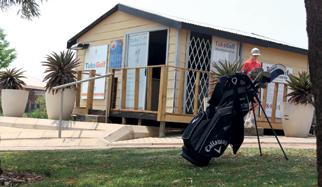
TuksGolf has been offering its training programs since 2006, and one of its main focuses is to use the Long-Term Athlete Development (LTAD) strategy to train its players. This strategy incorporates the philosophy that an athlete should train for 10 000 hours or 10 years to reach an elite level of competitiveness. PDBY was interested in how TuksGolf implemented this strategy, so we spoke to Neil van Vliet, the head of the program for TuksGolf. He says that golf is one of the hardest sports to learn, especially when it comes to movement. Therefore, enough time and patience should be put into learning all the necessary skills to be able to develop into a professional golfer, hence the LTAD. He was then asked how he was able to implement this strategy in teaching young kids, especially considering that they have a short attention span. He says he varies the training for young kids, and the focus is less on technical skills, but on enjoyment, short games, and “hitting the ball as hard as you can with speed”.
The LTAD, however, is not only limited to young kids, says Neil. Adults can also learn golf basics with this program, or they can take their already existing golf skills to the next level. With golf having so much participation throughout the country, it is encouraging to see the LTAD program also incorporating adults who are just looking to play for fun in their plan. TuksGolf also has a driving range on the Hillcrest Campus that is open to the public. It also has state-of-the-art equipment to ensure maximum performance for golfers. Adults and children alike can go to the course to hit some balls after a long day. If you’re interested in their coaching or just want to hit some flop shots or birdies, contact Neil van Vliet via e-mail at neil.vanvliet@hpc.co.za or mobile at 076 873 3937.
Helena Coetzee is a squash player for UP who has achieved a lot throughout her career. This season alone she has won three championships and finished in the top ten of the Growthpoint SA nationals. PDBY had a chat with Coetzee about her squash career throughout the years.

Who are you and how would you describe yourself?
My name is Helena and I love squash, listening to music, and reading. I would also consider myself a loyal friend who also cares a lot about people.
How did you get into squash and how long have you been playing?
I have been playing squash since I was ten years old. My dad and my two older brothers played squash when I was growing up, and my dad used to play league. So, we would go to the court with him and that’s when I thought that I should try it out.
Since this season, you have participated in more than three competitions. How much work goes into preparing for them?
Normally I train five to six times a week and when I have a competition coming up, I try to do extra sessions. We do gym sessions and on-court sessions. It does take a lot of time and a lot of sacrifices, but it’s definitely worth it.
How do you manage to train six times a week and balance schoolwork at the same time?
I train either early in the morning or late at night so during the day I can use that time to study. If you have good time management then it is definitely possible.
You won three championships this season alone, and you made it to the top ten of the Growthpoint SA nationals, how

were you able to achieve that?
It has been my goal to reach the top ten since I was a junior. So, when I started my studies at UP, I realized that now is the time to push hard and to grow a lot. I then started training with the guys team at a high-intensity level, training for extra hours and playing as many tournaments as possible to get as much practice
as possible.
What are some of the challenges you have faced to be where you are in your squash career?
I’ve had to sacrifice a lot of events that I would have liked to go to, including school tours, birthdays, and even holidays. Most of the things that I’ve sacrificed are social, but it’s substituted for a great experience, like when I am in the championships since it’s invigorating.
What do you envision for your squash career in the coming years?
I have been training as hard as possible this year with the hopes of making it into the PSA (Professional Squash Association) and I want to play there for a couple of years. I also hope to make the South African national team within the next three years and to be in the top five in squash in the country.
Who have you looked up to that keeps you motivated in squash?
I think my family, including my dad, has always supported me and has been in my corner. When I didn’t want to do something, he’d be like, “Come let’s go, I’ll play with you”. He also used to take me to the tournaments, which were very expensive. My squash coach, Liz Mackenzie, is also one of the people that helped me get to where I am. She started coaching me when I was in grade five and she helped me get a bursary with Dunlop and Tuks. I would say she definitely is one of my main supporters.
What is one piece of advice you would give to someone, in any sport, to be at the top of their game like you are? I’d say you have to make sure that when you are playing, you are still enjoying it. If it’s not fun, then I feel like it’s not worth it. You must do it because you love it and not because you have to do it.

As the year draws to a close, there is one thing that has remained constant throughout the return to campus, and that is the shocking state of parking on Hatfield campus. It is a catastrophe that can be classified as its own sporting event.

The first step that takes place is finding a parking spot. Now, finding parking is the easy part, the challenge comes in finding parking that is not more than five hundred meters away from the nearest entrance. The second challenge is not losing your mind when you come across cars that manage to take up two spots Next, SAPS steps up and starts dishing out parking tickets for illegal parking and or expired license discs - may this serve as a reminder to check when yours expires.
Now that a parking spot has been secured,the next problem is very much dependent on where you managed to park your car. If you parked outside allocated parking areas, your journey to any campus entrance becomes slightly more challenging. On this journey, you will be faced with people clad in high visibility jackets rushing you and demanding money for a completely free parking spot. They do this under the guise that they will keep your car safe. However, ask yourself, would you risk stopping someone that might be armed from stealing a car for loose change? Another added factor is the scorching sun that nearly melts the tarmac road. Then, finally, crossing the intersections on your way to campus. Here every approaching car is a question mark. Will they stop? Will they race past? Or is this finally the time your jaywalking will make you pay dearly?
Christiaan Steenekamp
Boundaries, skilful bowling, and great entertainment can be expected with the return of the Res cricket league. Res cricket is back in action this year after being on hold for two years due to the Covid-19 pandemic. The league starts on 9 October. All the league matches will be played on Saturdays (9, 16, and 23 October) including the semi-finals on 30 October. These matches will be played on the UP B, C, and D fields on Hillcrest campus (next to the hockey fields).
The league will consist of three groups. The following teams will play in their respective groups:
Group A
Dregeana
Group B
Many other events are happening during this daily outing, such as having to watch, with disdain, as people who live near enough to campus simply walk in. Then also realising that there are no UP bus pick-up points in walking distance, thus meaning you have no other choice but to drive. Finally, there is also the dread of knowing that when classes are over, you must not only make the journey back to your car, but also climb into the equivalent of an oven and make the trip back home.
There are many things to be thankful for with the return to campus. Most things are fantastic, but the one dreaded experience that will not be missed over the up-and-coming holiday is the UP parking Olympics.
Being back on campus, makes it difficult for students to balance their health and their studies. Therefore, PDBY has come up with ways for students to optimise their time on campus and burn off those calories while doing so.
Thuto stairs
At Thuto, everyone can do the following exercise: climb up to the top of the stairs and come back down. It may seem pointless on paper, but a study by Jerry M. Burger and Martin Shelton found that when more people use the stairs, others will follow. They did a study on university students and how taking the stairs had a positive impact on them both mentally and physically. If you already have classes at Thuto, PDBY recommends that you take the stairs instead of the elevator.
Walk/run
There is a trail on the Hatfield Campus, marked by footprints in different colours on the ground. These footprints are coloured differently according to the PDBY article Tuks fitness guide: Avoid first-year spread. The red prints are the 3.8 km trail, the blue ones are 2.3 km, and the yellow ones are 2.1 km. This is an exercise that can only be done during your break because it requires following the different trails around campus, and this might take some time.
Aula grass
The one thing that many students missed on campus during lockdown was the Aula grass. A lush bed of green grass that one can sit on and enjoy their lunch. Most people sit on the outskirts of the Aula grass as the large middle area is exposed to the infamous Pretoria sun. This opens a space for students who want to play around and get their bodies moving in between their breaks. Furthermore, it is a great way to meet new people and to get to know them.
Food
Three games were covered that happened on 16 October. EBIT and Dregeana played out a 133 run draw. Mopane were victorious against College by securing 135 runs, while Ekhaya claimed a win against OP Village with 134 runs.
The league will be played in T20 format which means a lot of sixes can be expected. Let’s go out and support our teams in what looks set to be a great semi-final!

Group C
The Piazza is a great place to get food because it has a few restaurants conveniently placed near each other. However, the Piazza being in the centre of campus limits the distance students have to walk to get to it. While this is great for convenience, it is less than ideal for reaching your step goal. Maybe once or twice a week, just to increase the amount of steps a student walks on campus, try some places that are a little further off. A good example is the second Vida e Caffe that is situated by the Visual Arts building, and which you can walk to from Thuto for that maximum distance. The other is Ten’z Express which is near the Akanyang building. If you are by the Engineering building, this is also a long but beneficial distance to walk.
So instead of seeing campus as a place to move from one class to another, try thinking of it as diverse gym. Try it, even if it is for one day, just to see how different their mind and body feels when they are not just sitting in one spot everyday and moving from class to class mindlessly.

